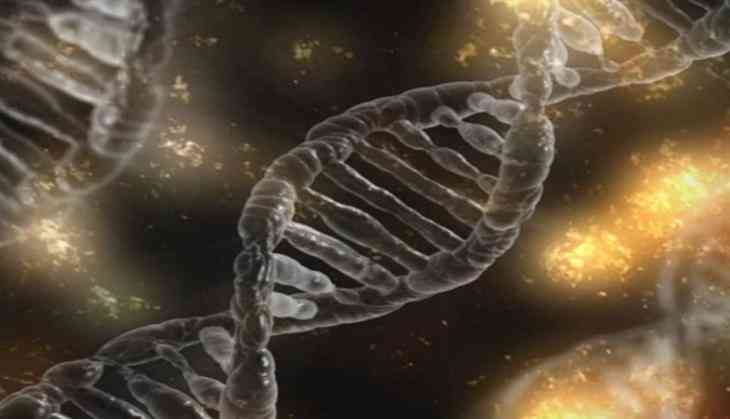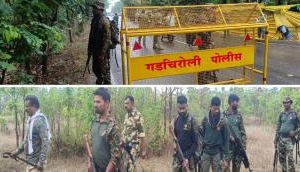
In a compelling debate on forensic DNA technology's role in fighting crime, organised at the Foreign Correspondents' Club-South Asia, forensic, legal, and policy experts attributed the rise in crimes against women in India to more reporting of cases rather than an extraordinary spike in violence.
They observed that increased reporting was a positive trend based on awareness and activism resulting from popular movements like Nirbhaya and #MeToo, along with improving investigative & forensic infrastructure. However, experts cautioned that India, where more than 100 rapes are reported daily and only one in four of them sees the conviction, DNA evidence was only being used in a fraction of cases and called for DNA collection and testing to be made mandatory in all violent crimes.
"DNA evidence is conclusive evidence. It will enhance the credibility of India's criminal justice system manifold. However, for that to happen, we need to have better investigative machinery in place along with sensitization of the police and first responders across ranks. There is a need to make DNA testing & collection mandatory and an integral part of the investigative and legal culture in the country. In parallel, attention must be paid to building forensic infrastructure throughout the country in collaboration with the private sector," said advocate Vivek Sood.
"Clearly awareness about the power of DNA technology has increased in the past few years. It has contributed to more reporting and we have seen DNA testing numbers goes up. India's FSLs have also started talking to the government to fund upgrades and training to tackle backlogs. However, India is a country of a billion people and even 20,000 DNA profiles in a year is a drop in the ocean. I see an immediate need for scaling that up by 10 times to 200,000. It's evident that a lot more needs to be done by all stakeholders," said Tim Schellberg, Founder and President, Gordon Thomas Honeywell--GA.
"Social stigma and resistance at every step discourage women from reporting rape. However, our experience in Himachal Pradesh shows that technologies like DNA can be very helpful in building public confidence and encouraging reporting. We have been consciously upgrading our forensic infrastructure and talking to people about it. The result has been a substantial increase in requests for DNA profiling over the years with nearly 50 per cent of the total crime cases linked to rape and sexual assault," said Dr Vivek Sahajpal, Assistant Director, Himachal Pradesh State FSL.
"In my experience, raising awareness about DNA technology's role in bringing justice is the key and communities need to get involved in that effort. Reporting is one thing. What we also need to count is the number of rightful convictions and victims getting justice. A mandatory system helps institutionalise proper evidence collection, storage, and testing, which in turn instils more confidence in people to come forward," said Vanessa Lynch, Founder, DNA Project, South Africa.
As per recent estimates, the number of DNA profiles developed from crime scene evidence has doubled over a year from 10,000 cases tested in 2017 to nearly 20,000 this year. Despite an uptick in the number of profiles being tested, the volume remains low considering that nearly 40,000 cases of rapes are registered every year. Official statistics show a dramatic increase in the number of crimes against women, which have increased more than 80 per cent over 10 years, with only one in five cases resulting in conviction.
Forensic DNA has emerged as the most reliable crime-fighting technology world over. Many countries are effectively using forensic labs and protocols to collect, test and compare DNA at crime scenes with that of suspects with promising results. Where the law machinery world over is increasingly relying on DNA forensics to solve the crime, the pace in India has been slow. Lack of scientific methods in investigations and the absence of a proper policy framework in the country continue to hamper justice.
Internationally, DNA forensics is used as a standard operating procedure in cases of heinous crimes like rape and murder. Countries with less than a tenth of India's population like the United Kingdom and Thailand complete DNA testing on over 60,000 and 10,000 crime scenes in a year respectively.
The public debate was jointly organised by Foreign Correspondents' Club-South Asia and Gordon Thomas Honeywell-Governmental Affairs. The panel comprised of eminent speakers: Tim Schellberg, Founder and President, GTH-GA; Vivek Sood, Sr. Advocate, Supreme Court of India; Dr Vivek Sahajpal, Assistant Director (DNA) State FSL, Himachal Pradesh; Vanessa Lynch, Founder, DNA Project-South Africa; S Venkat Narayan, President, FCC-SA; and Arneeta Vasudeva, SVP and Capability Head (PR and Influence) Ogilvy India.
This story is provided by BusinessWire India. ANI will not be responsible in any way for the content of this article.
-ANI







![BJP's Kapil Mishra recreates Shankar Mahadevan’s ‘Breathless’ song to highlight Delhi pollution [WATCH] BJP's Kapil Mishra recreates Shankar Mahadevan’s ‘Breathless’ song to highlight Delhi pollution [WATCH]](http://images.catchnews.com/upload/2022/11/03/kapil-mishra_240884_300x172.png)

![Anupam Kher shares pictures of his toned body on 67th birthday [MUST SEE] Anupam Kher shares pictures of his toned body on 67th birthday [MUST SEE]](http://images.catchnews.com/upload/2022/03/07/Anupam_kher_231145_300x172.jpg)






